Results indicated that not only can dogs detect Covid faster, but they can also do so in a non-intrusive manner – so no need to swab your throat or nose

Dogs can detect Covid-19 faster and more accurately than a PCR test, a new study shows.
Researchers looked at the ability of canines to recognise the virus and its variants, even when they are obscured by other viruses, like those from common colds and flu.
More than 400 scientists from over 30 countries contributed to the study as well as 147 scent dogs, according to the findings published in the Journal of Osteopathic Medicine.
After analysing many studies covering both field and clinical experiments, Professor Dickey and Junqueira found that dogs who are trained to sniff out scents are “as effective and often more effective” than antigen tests.
A total of 53 dogs were trained to sniff out Covid scents, while 37 were not and scientists found that the dogs that were not trained were in some cases “slightly superior” to those that were pre-trained.
“The previously untrained dogs have the advantage that they are not as prone to indicating on scents other than the Covid–19 associated scent,” the paper said.
The results indicated that not only can dogs detect Covid faster, but they can also do so in a non-intrusive manner. This means you won’t need to put a swab in your throat or nose.
How can dogs detect the virus?
This essentially comes down to the dog’s highly evolved nose with its ability to sense out smells quicker.
Dogs possess up to 300 million olfactory receptors in their noses, compared to about six million in humans. And the part of a dog’s brain that is devoted to analysing smells is about “40 times greater” than humans. Canines also have ‘neophilia’, which means they are attracted to new and interesting odours
And so, with all these enhancements, dogs can detect very low concentrations of odours associated with Covid infections.
“They can detect the equivalent of one drop of an odorous substance in 10.5 Olympic-sized swimming pools,” Professor Dickey said. “For perspective, this is about three orders of magnitude better than with scientific instrumentation.”
Scientists also found that in some cases, the animals were also able to detect the virus in pre-symptomatic and asymptomatic patients, “whose viral load was too low for conventional tests to work.”
Professor Dickey has said that dogs can also differentiate Covid and its different variants in the presence of other respiratory viruses. This included the common cold or flu.
“They’re much more effective. In fact, one of the authors that we quote in the paper commented that the RT-PCR test is not the gold standard anymore. It’s the dog. And they’re so quick,” he added. “They can give you the yes or no within seconds if they’re directly smelling you.”

How was the study conducted to see if dogs can really detect Covid-19?
In some studies, the dogs gave a person a quick sniff, sitting down to see if the person has Covid. In another study, the dog was given a sweat sample to smell for a few minutes.
The press release has said that scent dogs, such as beagles, basset hounds and coonhounds are the ideal candidates for sniffing out the virus, given their “natural tendencies to rely on odours to relate to the world.”
But the studies which the researchers analysed showed a variety of dogs were up for the challenge and were able to sniff out the Covid odour. With a few weeks of training, puppies, older dogs, purebred and mixed breeds, both male and female were able to sniff such odours out and “all performed admirably,” the Eureka Alert press release said.
Although there has been success with dogs detecting such viruses, researchers believe there are still many challenges with using dogs for medical diagnoses.
“There’s quite a bit of research, but it’s still considered by many as a kind of a curiosity,” said Professor Dickey.
In conclusion, Professor Dickey and Junqueira said after reviewing the studies, believe that scent dogs deserve “their place as a serious diagnostic methodology that could be particularly useful during future pandemics, potentially as part of rapid routine health screenings in public spaces.”
“Perhaps, most importantly, we argue that the impressive international quality and quantity of COVID scent dog research described in our paper for the first time, demonstrates that medical scent dogs are finally ready for a host of mainstream medical applications,” they added.
Use these 10 Amazon best sellers to solve icky problems
Need solutions to those pesky, unpleasant problems that seem to pop up at the worst times? Here they are! These gems have been tried and tested by countless satisfied customers. Let’s discover the products that will make life a little smoother.
1. This little silicone drain protector will effectively catch all the hair while you are showering. And it will hold securely in place due to the weighted stainless steel accent. The product is rust-resistant and long-lasting.

The device is a game-changer for hair clogs. It seamlessly blends with your bathroom decor. This little thing will considerably upgrade your shower routine.

Promising review:
- I love this drain protector! I moved and had to find a new drain catcher that could fit over the plug! I was skeptical because the reviews looked 50/50. But trust me, this is exactly what you need. It catches all of my naturally thick hair! — CurlyGirlFaith
2. Detect and clean all the hidden messes with this awesome UV flashlight. No more blindly cleaning carpets and furniture. The superb aluminum construction features a non-slip textured grip. The lighting time is impressive — the device can work up to 20 hours.
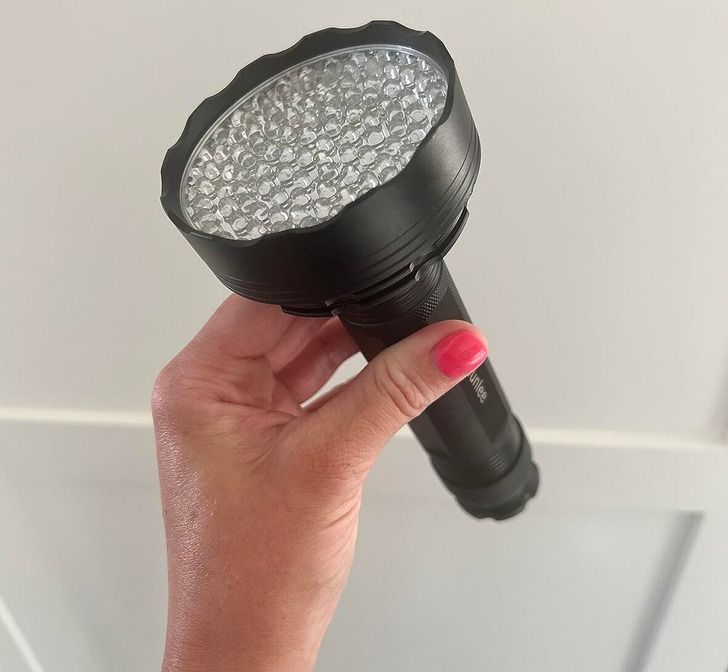
This product can also cover larger areas without weakening the light. It will make finding those hidden stains a breeze.

Promising review:
- Do you suspect your carpet has been violated? Don’t buy it if you don’t actually want to know. Sometimes ignorance is bliss. You can’t go back and unsee it, and the glow will be burned into your memory. I will preface this because you know you’re judging, and I don’t blame you.
This was a very unique set of circumstances, and the carpet will be replaced. I foster kittens for a local shelter, and my most recent crew has tenaciously refused to embrace litter box training, probably because they have a weird addiction to violating carpets.
Regardless, I purchased this light to see if my suspensions were correct, and they were. The little monsters were willy-nilly using the carpet to relieve themselves. This flashlight lit up their transgressions very clearly, and while I felt tearing it out was the appropriate solution, if I had been inspired to clean it, I would have known exactly where I needed to clean it. Hope this helps. — Ann Krummel
3. Check out this dirt-catching, double-layered litter mat! Its bottom layer is waterproof — no liquid will go through. The mat is slip-resistant and easy to move. This product keeps our furry friend’s paws clean and prevents any mess from getting on the floors.
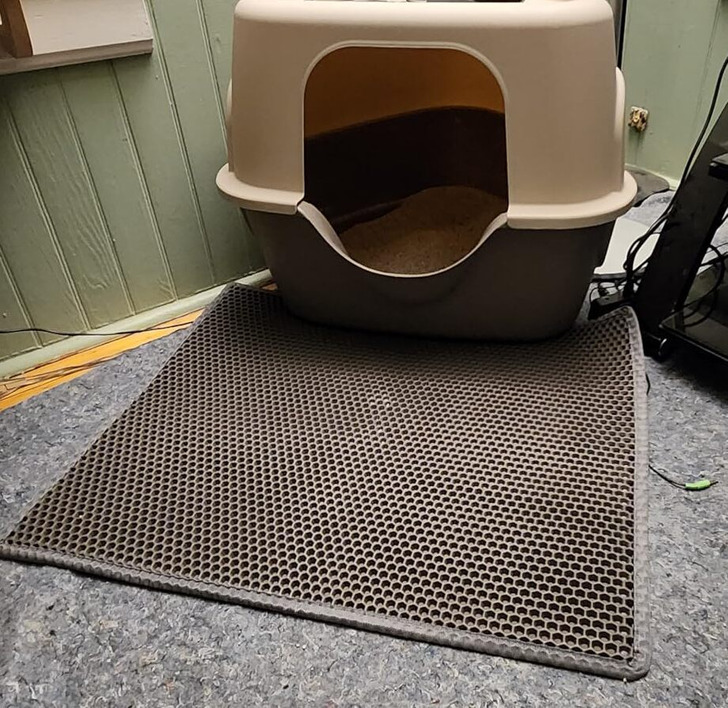
The mat is easily washable and comfortable to maintain. The product is also really soft on paws. Some kitties can also use it to have a nap on.

Promising review:
- We keep our catbox for our 2 cats in the bathroom. There is nothing like stepping on little pieces of cat litter on the bathroom floor in the middle of the night and cleaning the random little pieces of litter all the time!
This mat has solved the problem! Almost no litter makes it to the clean floor now! Easy to empty, too! Great product!!! — Rich R.
4. No more smelly sneakers with these banana shoe deodorizers. They prevent and neutralize odor and absorb moisture. And, like real bananas, they will turn brown over time and use (you can use it as an indicator to replace the pair). Perfect for use after hiking, climbing, or cycling.

These goofy bananas are highly effective and long-lasting. They can last up to 6 to 12 months. The pouch is made out of natural cotton fabric. Each banana is filled with salts, minerals, and plant extracts.

Promising review:
- For someone who likes to commute to the city lightly, I usually don’t wear socks when it is extremely hot and humid during the summer days. I’d get home, and of course, my sneakers would reek from a day out!
These shoe deodorizers have saved the day by keeping my sneakers smelling great. I place them as soon as I get home. I usually leave them alone until the next day when going out, and the results are amazing! Smells great. — Neftali
5. Now you can keep your hand out of the toilet while cleaning it! Just use this stone toilet bowl cleaner. It has a long handle made from stainless steel and plastic. The pumice is 100% natural.
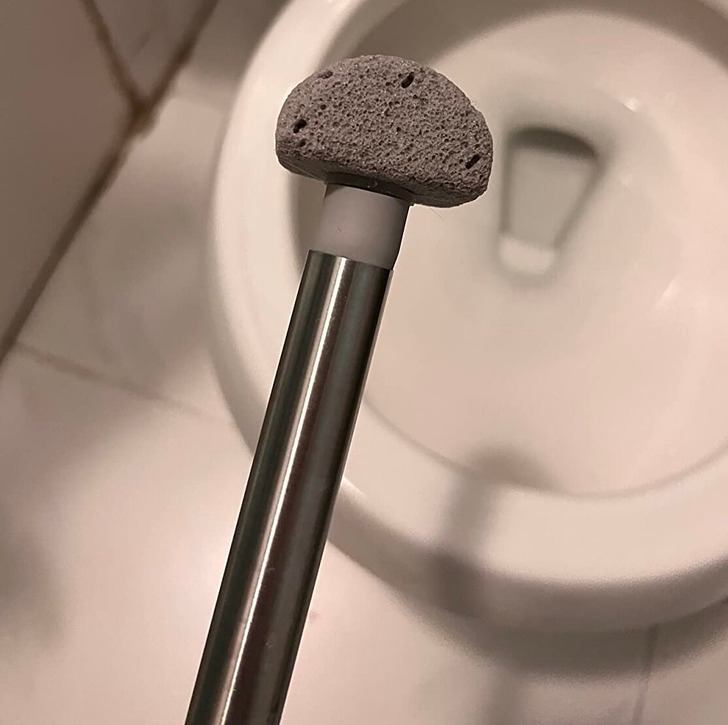
The product will serve you for a long time. Don’t forget to rinse the stone thoroughly every time. Easily stored.
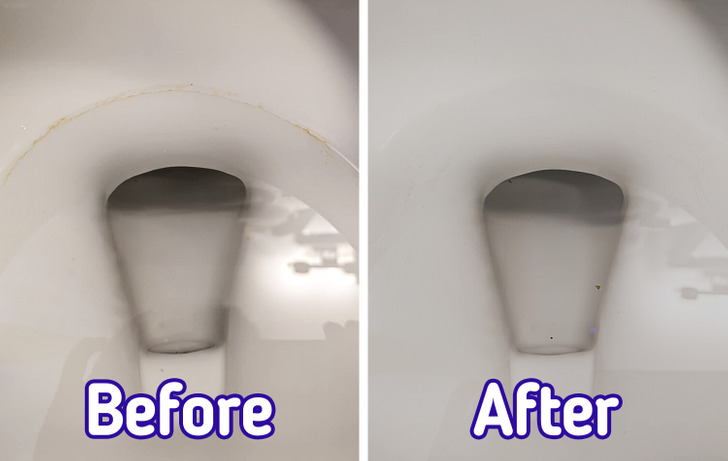
Promising review:
- We live in an older home in an area with hard water. Our white toilets end up with a discolored deposit around the water line. Every few months, I would take a pumice stone and scrub them out. I hated getting my hand in the toilet water. This pumice stone wand allows me to scrub out the discoloration without getting my hand wet!
It works really well, but as all pumice stones wear away as they’re being used, the small size of the stones means they won’t last long. It comes with 8 stones, so that will still get me a lot of use. If you want to keep your hands out of the water, then this is a good buy. If you want to save some money and don’t mind getting your hands wet, then just buy a pumice stone. — Gypsy Blue
6. Keep your breath minty fresh with this oral care mist. The product features a sugar-free formula that doesn’t just mask the odor but solves the problem.
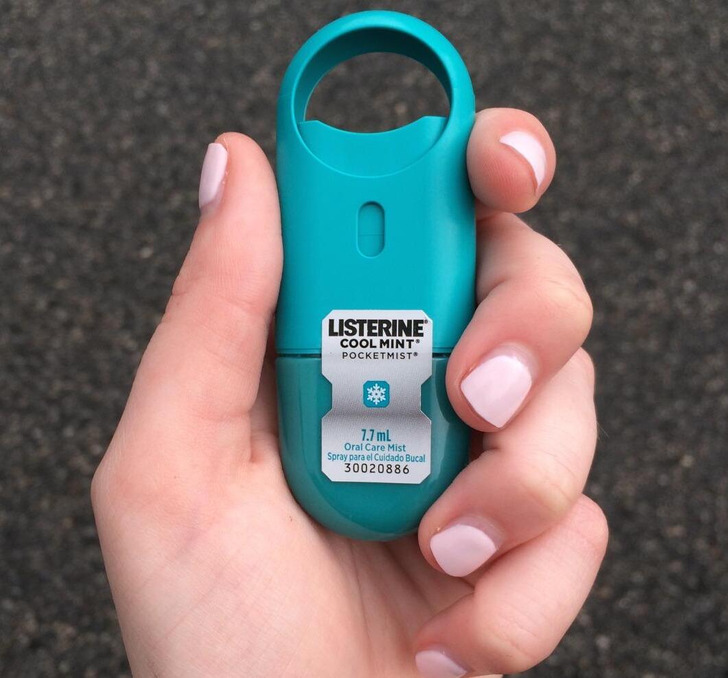
The mist actually kills bacteria causing bad breath. The packaging is handy and compact. And it is easy to carry the product with you at all times.
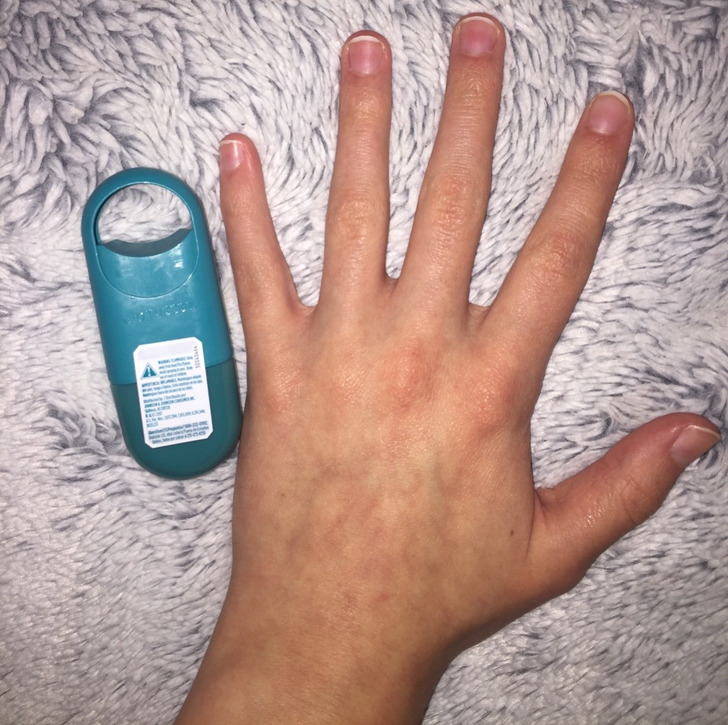
Promising review:
- I absolutely love this product and for reference in the picture the packaging looks a little bit weird because I peeled off the stickers, so don’t mind that. The spray is really good to use for bad breath emergencies, but I would not recommend using it all the time. It does make your breath a little bit stinkier in the long run because the alcohol in Listerine dries out your mouth. But overall, I definitely recommend this for emergencies. — Estelle
7. You’ll have no problems with chafing and blisters while using this all-natural solution. It can restore dry or cracked hands, feet, and faces too. The product goes on easily and works like a charm! The size is perfect for traveling.

The product contains coconut oil, cocoa butter, beeswax, and vitamin E oil. It is suitable for sensitive skin. It is also child-safe and is not tested on animals.
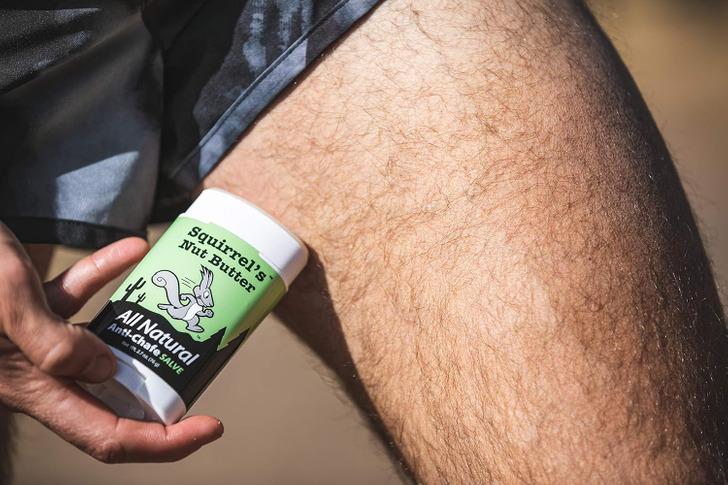
Promising review:
- The product is the perfect size to travel with or put in a pocket. Goes on easily and works like a charm. No problems with chafing while using this product. Great value for the cost.
There is a slight smell but to be honest, it’s very mild (have to hold up to my nose to smell it) and it’s not a bad smell. Would buy over and over again. I use this 2–3 times a week. — Christen Tasevski
8. This odor remover is safe to use around pets and children (although you should still make sure no one tries to taste it). You can comfortably use it on any surface: rugs, walls, floors, etc. The unique non-enzymatic formula doesn’t mask the problem but eliminates it.
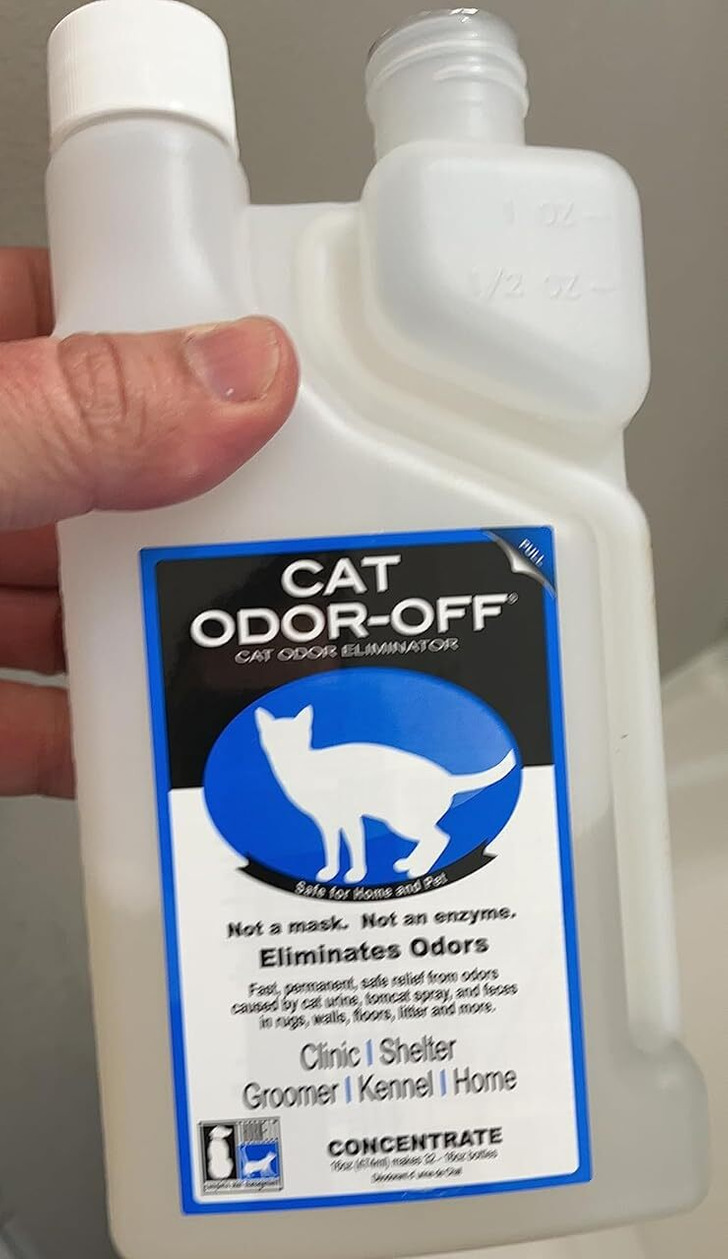
And it can even help prevent the pet from returning to the spot! Warning: Make sure no one swallows it.

Promising review:
- Used as directed. Worked very well, still not entirely sure about the scent. It’s okay, but not super fond of scent. Getting used to it, though.
Does smell slightly like Christmas, as other people have said. A little pricey, but goes a long way. — Mary McMullen
9. Another perfect way to prevent clogging your pipes. This set of 2 rust-proof hair drain catchers will serve you for a long time. Each piece is extremely durable and features silicone edging. It makes the product stay safely in place, which is very handy.

The product is simple yet effective. This little thing will save you a ton of money on plumber visits. It is easy to clean; you can just use a simple tissue.
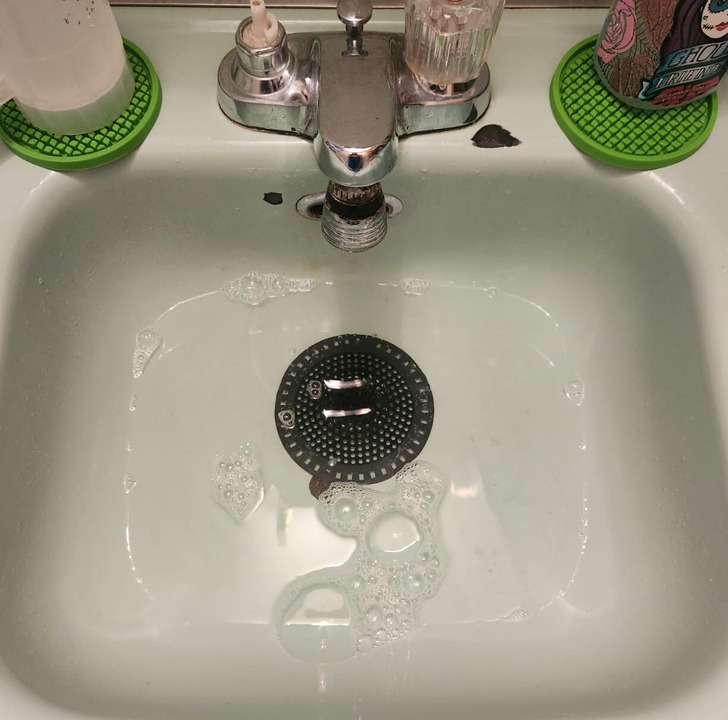
Promising review:
- I wish I would have gotten these a couple of months earlier than I did. These covers fit perfectly on both of my shower drains and really do help keep hair from going into my drains! So far, they have stayed secure with the good rubber outer ring and cover the whole drain without moving when you step on it or have the shower flowing onto it. I will be helping my plumbing by not having to clean the drains so much now. I recommend these covers. — natalie
10. Keep your shower clean with just one swipe using this wall-mounting shower hair catcher! And here is a cute pointy-eared design for all cat lovers. This product will effectively trap your hair and prevent pipe clogging.

This product is super easy to install and use. Spend less time on cleaning your shower and more time on something else.


Promising reviews:
- This thing has saved sooo many little arguments about my hair being left on the shower wall! It’s easy to use & has a strong grip! — Melissa Riggins
- Super easy to install and use. I was finding that my drain was clogging up a lot, so I figured I would give this a try. Love it! — Victoria
Buy the 1st item on AMAZON here
Buy the 2nd item on AMAZON here
We hope you like our picks and will enjoy using these products. They have all the potential to make life a walk in the park. Remember, sometimes the simplest solutions to daily struggles are the best.
Bright Side gets commissions for purchases made through the links in this post. Reviews could have been edited for length and clarity. The prices and discounts displayed in this article may change without further notice.
Preview photo credit Ann Krummel / Amazon, Kelsey / Amazon

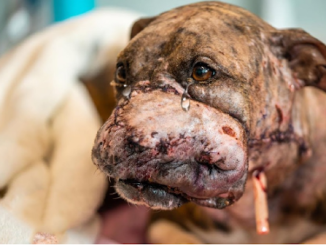
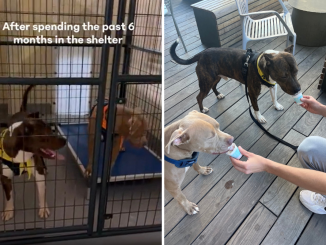
Leave a Reply